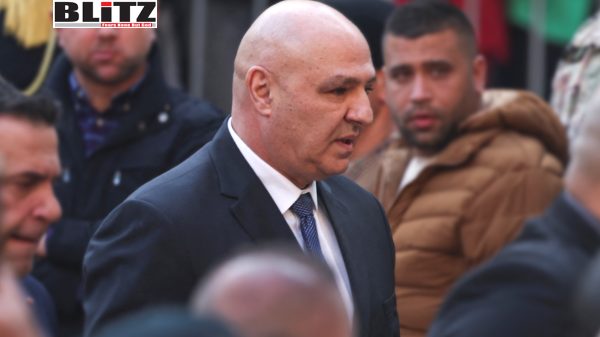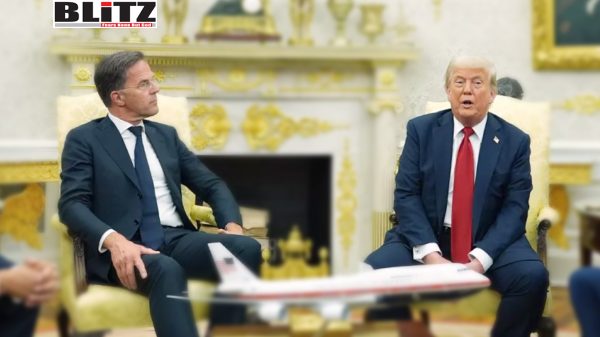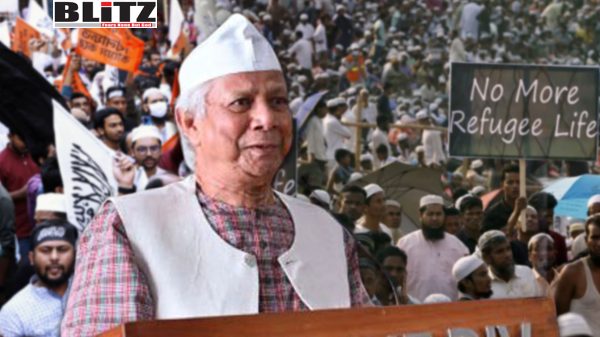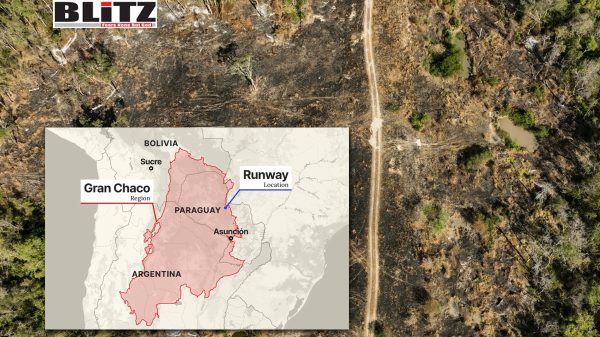Tehreek-e-Taliban Pakistan calls for ‘jihadist victory’ in India
- Update Time : Tuesday, October 31, 2023

The latest issue of the Urdu-language magazine “Taliban,” which is published by Tehreek-e-Taliban Pakistan (TTP), carries a major article which says that a victory of “the jihad of Pakistan” will herald victories over India, Iran, and Syria, opening the doors to Jerusalem via Syria as well as by sea route from South Asia, reports MEMRI.
The magazine was published before the October 7, 2023, Hamas attack in Israel, but it carries a major article titled “Pakistan – On The Path Of Al-Quds [Jerusalem].” It is written by Saad Mahajir, a late jihadi fighter. A short note at the beginning of the article says: “The purpose of writing this article is to engender the sentiment for the jihad of Pakistan among the mujahideen brothers. Additionally, we discussed those difficulties that the Pakistani mujahideen face due to not having weapons and strength”.
The magazine’s latest edition, Issue 20, is dated Rabi-ul-Awwal 1445, in the Hijri calendar, which corresponds with the lunar month beginning September 16, 2023. A PDF of the magazine was shared on the website of official TTP arm Umar Media.
Although the article’s title mentions Al-Quds, it does not dwell much on Jerusalem, but rather discusses the importance and necessity of “the jihad of Pakistan” as having larger implications for the international jihad. “The jihad of Pakistan is from among the best of jihads and is an important jihad because with a victory over Pakistan, the path opens for the victory over the lands of India, Iran, China, and Bangladesh and the victory of these lands (India and Iran). The ray of victory on the land of Al-Quds is connected to this jihad [in Pakistan]”.
It further says: “The victory over the Indian Subcontinent can also be due to this jihad. The victory over Pakistan and then over Iran weakens the Hizbullah of Lebanon and governments like that of Bashar Al-Assad. The weakening of these unbelief-loving governments is due to the victory of the mujahideen of Syria, and the victory over Syria opens the doors to Bait-ul-Muqaddas [i.e., Jerusalem]”.
“With the victory over Pakistan and then victory over India, thousands of Muslim prisoners who are imprisoned in the prisons of India can be freed. And the sea route will be opened for Al-Quds and South Asia. [The jihad of] Pakistan is on the path of Al-Quds,” the article says, adding that the jihad in Pakistan and Afghanistan has been important in resisting Western influence.
One of the articles, titled “Discussion About Hazrat Habib Bin Zayd Ansari”, narrates the life and sacrifices of Hazrat Habib bin Zayd Ansari, one of the companions of Prophet Muhammad. It highlights his family’s strong commitment to Islam and his early pledge of allegiance to Muhammad, noting: “His mother, Umme Ammarah belonged to Banu Maazen tribe. She was the first woman who took up sword in the defense of Allah’s religion and Prophet Muhammad. His brother Abdullah bin Zayd Ansari participated in the Battle of Uhud and stopped the arrows coming toward Prophet Muhammad with his own chest”.
The article also tells the story of how Habib was chosen by the founder of Islam to deliver a letter to Musailma Al-Kazzab, rejecting his invitation to accept him as a prophet and declaring him to be false prophet. It says that when Habib went to the court of Musailma Al-Kazzab, he was ordered to accept him as prophet but upon refusal Habib’s tongue was cut off. When the message reached his mother, the article says, “She thanked Allah, saying that I had raised my son for this day”.
The magazine’s editorial, titled “The Abominable Politics Of Unpious Army”, criticizes the Pakistani generals and politicians after they recently blamed Pakistan’s economic problems on the Afghan Taliban-ruled Afghanistan.
“In the name of [counter-]terrorism, these generals have been filling their coffers by taking foreign aid. All these facts are in front of the public, but instead of admitting their black deeds, these generals are blaming the decline of the country’s economy on the neighboring country. It is being propagated that one of the main reasons for the sinking of the Pakistani economy is the Pak-Afghan transit [trade]. The reason for the increase in the value of the dollar is that the dollar is being smuggled into Afghanistan [from Pakistan]”, the editorial rues.
An article, titled “The Pakistani States’ Loss Of Life In Others War”, addresses how “some people in positions of power in Pakistan” have engaged in actions that seem to have no benefit, causing harm to the country and its citizens. It points out that Pakistan’s history, marked by conflicts and operations, often leads to innocent lives being lost. The article suggests that those who have caused such destruction and suffering may face consequences in this world and the hereafter, emphasizing the need for repentance and mercy.
The magazine also features an exclusive interview with Sheikh Abdul Rahman Hammad, a member of the Leadership Council of Tehreek-e-Taliban Pakistan (TTP). In the interview, Sheikh Abdul Rahman introduces himself and highlights his educational background, including his association with various Islamic educational institutions. The religious educational institutions mentioned by him are Jamia Binoria madrassa of Karachi, Jamia Imam Abu Hanifa Mecca Masjid, Jamia Farooqia Shah Faisal Colony, Jamia Islamia Taiba, Jamia Al-Rasheed, and Jamia Dar-ul-Uloom, Karachi.
He also mentions his involvement in militant training and jihadi activities starting in 1998, particularly during the U.S. invasion of Afghanistan after 9/11. Sheikh Abdul Rahman discusses his commitment to jihad and his belief in the success of the Islamic Emirate. He emphasizes his decision to join Tehreek-e-Taliban Pakistan in 2013, believing it to be the party protecting the Ideology of Pakistan, which views it as the second Islamic state after the first one established by Muhammad in Medina.
The interview concludes with Sheikh Abdul Rahman expressing his dissatisfaction with the current political class in Pakistan. He suggests that politicians should focus on managing the country effectively, rather than resorting to personal rivalries and divisive tactics. “I wish the politicians of Pakistan were politicians and played the role of politicians, i.e., those who understood the management of the country. If they were those who understood the management of the country, they would not have left their authority in the hands of those who have made the noise of the brain by hitting their heels on the ground and who find solution of every problem in shooting bullets”.
One of the key articles, titled “What If The White-Collar Robbers Cannot Fight The Ordinary Robbers…?” discusses ongoing issues with criminal gangs operating in remote areas of Sindh-Pakistan province. Despite various promises and efforts, the problem persists, it notes how Pakistani government has spent billions of rupees purchasing weapons to fight them but has been unable to challenge them.
Noting that there is lot of corruption buying weapons, TTP offers to tackle this problem, stating: “The reality is that these… robbers are not so powerful. I challenge that if the state [of Pakistan] does not spend even one rupee but does not become an obstacle in the path and gives Tehreek-e-Taliban Pakistan four to six months, [the criminal gangs] will be dealt with, with Allah’s aid, Allah willing”.
One of the lead articles, titled “Pakistani Military – When, How And For What Objective It Came Into Existence?” discusses the historical origins of the Pakistan Army, noting that it has roots in the East India Company, a British trading company from the 1600s. The East India Company expanded its influence, including establishing colonies and a military force. After Pakistan’s creation in 1947, the British-controlled army became the Pakistan Army. This history helps us understand how the army has been influenced by the West and has often acted against the interests of the Muslim population, it says.
It says: “The fact is that this army was a slave of the British yesterday and is still loyal to them today. Before the partition of India, they had committed great betrayals against Islam and Muslims under the command of the British, even after the creation of Pakistan, their hands have been stained with the blood of Muslims”.
The magazine published a comprehensive 11-page report detailing TTP’s activities in September 2023. The report provides a thorough account of the group’s actions during that month, including the number of attacks, casualties, captures, and the weapons seized from Pakistani security forces. In the month of September 2023, TTP carried out a total of 106 attacks. These attacks resulted in the deaths and injuries of 292 soldiers, police, and personnel from the Counter-Terrorism Department, Frontier Corps, and intelligence. The group also managed to capture a town and seized six different types of weapons. The report details the group’s activities and their impact during this period.
The magazine contains the following articles: “Editorial – The Abominable Politics Of Unpious Army”; “Discussion About Hazrat Habib Bin Zayd Ansari” by Ustad Zakir; “A Special Interview With Sheikh Abdur Rehman Hammad, Member Of The Leadership Council Of Tehreek-e-Taliban Pakistan”; “What If The White-Collar Robbers Cannot Fight The Ordinary Robbers…?” by Maulana Khalid Quraishi; “Think, Think Again!” by Abdullah Mujahid; “The Pakistani States’ Loss Of Life In Other’s War” by Maulana Abu Muhammad Afridi; “The Truth About Milad-Un-Nabi (Do We Want Physical Birth Or Spiritual Birth?)” by Mufti Gufran; “The Caravan Of Truth Of Leaders – Part V Of Pashtu Book Written On The Biographies Of Top Leaders Of The Islamic Emirate Of Afghanistan”; “The Constitution Of Pakistan – An Islamic Or Un-Islamic? Part V” by Sheikh Abdur Rehman Hammad; “The Order Of The Leader And Officials – Rebellion And Martyrdom, Part V Last by Maulana Abdul Hakeem; “The Appeal Of The Oppressed, Part IV Of The Book About Prisoners Written” by Mufti Tarek Mehsud, Member Of The Leadership Council Of Tehreek-e-Taliban Pakistan; “Pakistan – On The Path Of Al-Quds” by Saad Muhajir Shaheed; “Pakistani Military – When, How And For What Objective It Came Into Existence?” by Engineer Saad Memon”; and “The Monthly Report Of Operations”.











